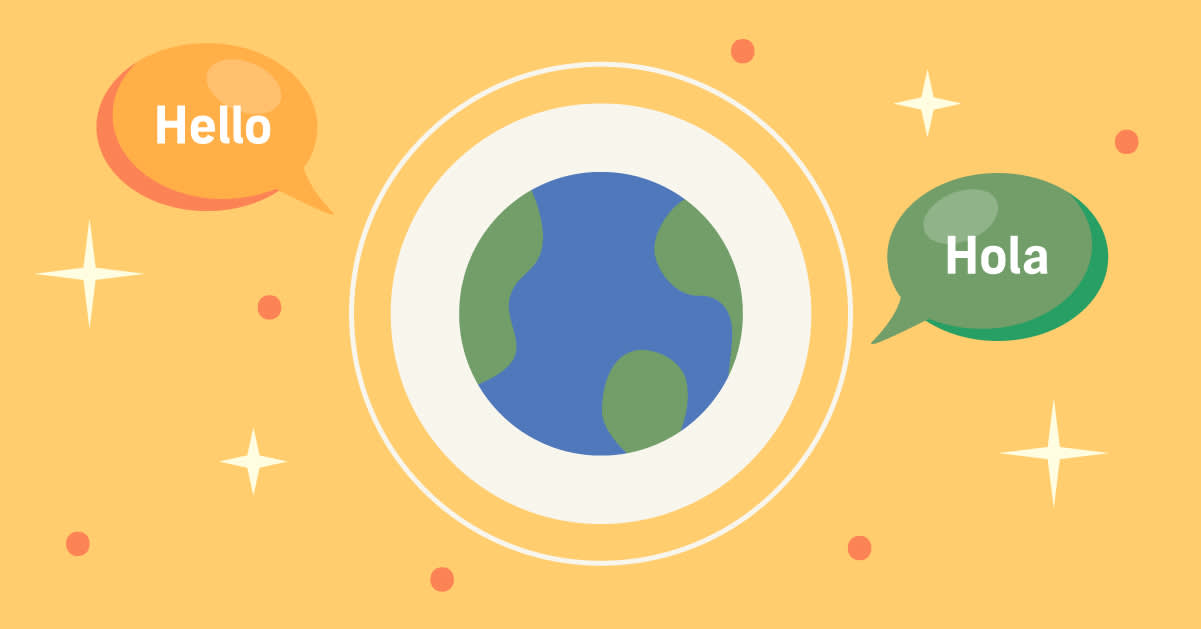As a first-generation, trilingual American who uses English a majority of the time, I’ve found there is a thin line between “I speak Spanish fluently” and “Que dijiste?” (“What did you say?”) when I am presented with an unfamiliar word—and I’m not alone.
To both my amusement and relief, this message popped up recently in an online chat for Unidos@Audible, a Hispanic/Latinx impact group I’m involved with at work: “Hello everyone, I am trying to get into more Spanish-language listening to bolster my vocabulary since I've forgotten a lot of words over the years. I tried some audiobooks entirely in Spanish, but it was tricky for me to follow along. I think I need something a bit easier, otherwise I'll need to look at the dictionary every five words. Any suggestions?”
As I watched the screen fill up with recommendations, I had plenty of ideas, but they varied greatly by aptitude level. So, I did what any listening-obsessed, fellow fluency seeker might do: I wrote this guide.
If immersion is the key to learning a language, then nothing is better than immersing yourself in some of the best audiobooks for learning Spanish, told by some of the greatest storytellers and compelling voices in the language. Feliz Escuchando! (Happy listening!)
Know your listening fluency.
I can’t stress the importance of this enough: Knowing your fluency will allow you to pick titles that will hold your interest, and keep you frustration-free. For example, a person who has conversational fluency would not pick , which uses words and phrases that are beyond a conversational fluency. I recently learned this the hard way when I attempted to listen to Les Miserables in French—despite its multicast performance and my familiarity with conversational French, the title of the book did a better job of describing me than the actual story! I have since taken a deep breath, humbled myself, and picked up instead; Les Mis, along with any complicated title you’re trying to listen to, can wait. So, determine your skill level, and then check out one of the titles below to learn how to listen in Spanish.
Beginner
When listening to , you will be guided to basic Spanish words and expressions. What is unique about this collection of short stories is that it uses three formats to keep the listener engaged. The stories are read by a male narrator, who speaks slowly to help with pronunciation. Then, a female voice reads the stories at normal speed, so you can train your ears to understand Spanish as it is spoken. Spanish audio flashcards are the last format: between each word or phrase, you will have time to repeat them to yourself and hear a translation. (A PDF is included with the audiobook as well!)
Intermediate
In , you’ll find several lessons and drills that will teach you how to grasp and understand the different nouns and verbs in the Spanish language. You will also be guided, via three performers, through learning the names of body parts, tools, and home appliances in Spanish. This Audible exclusive is sure to have you taking your conversational Spanish to the next level.
Advanced
The focus in is achieving a Latin American/Spanish accent. You are also going to learn how to master advanced vocabulary and fine tune your comprehension skills so you are able to converse with native speakers. This title features only native Spanish speakers, providing a really authentic pronunciation of the different words in Spanish. If you are a native Spanish speaker and have gotten a bit rusty, this audiobook helps with improving accent and practicing conversational fluidity.
When in doubt, podcast it out!
Podcasts are a great way to further develop your bilingual listening habits. With such a large variety of podcasts available, many free with Audible membership, it’s as simple as picking something that you’re interested in and pressing play. I find that most podcasts are easy to digest because they are about 30 to 50 minutes long. They use a conversational tone and less complicated words. From to , there’s a podcast out there for everyone! Check out some of the best podcasts to learn Spanish below.
Beginner
Coffee Break Spanish will literally have you speaking Spanish in your first lesson! This podcast starts with a simple word or phrase—“hello,” for example—and teaches you how to build on that. By the end of the first episode, you’ll be asking “Hola, que tal?” with ease.
Intermediate
Unlimited Spanish is an entirely Spanish-language podcast, delivered slowly and conversationally so you can follow along. Join Oscar as he teaches you things like “Expresiones para decir adiós” (expressions to say goodbye) and the really important stuff, like “Cómo pedir una cerveza” (how to order a beer). Unlimited Spanish is a witty, diverse podcast, which is accompanied with a transcript via the Unlimited Spanish website.
Advanced
Radio Ambulante is a podcast that focuses on different stories happening within the Latin American community and around the world. The stories are told by journalists and their subjects. Radio Ambulante is completely in Spanish and covers a variety of topics, from injustices against women (No hay visitas) to spirituality (La llamada del 10).
It’s time for your first complete audiobook in Spanish. Now what?
It’s time to listen—what could possibly be next, you ask? To that I reply: check your listening speed! In English, I am normally a 1.7x-2.0 x listener. In Spanish, that sounds like my mom when she’s peeved off. (Hi Mom!) Sometimes, something as small as switching your listening speed from 1.7 to 1.4 is just enough to change the listening experience from a negative one to a positive one. (Here’s a refresher on how to change narration speed for and .) Finding a perfect listening speed for yourself is just as important as picking a title—well, almost. With that in mind, here are some of the best audiobooks to listen to when learning Spanish.
Beginner
Buscapistas: El Caso Del Manuscrito Secreto (Seekers: The Case of the Secret Manuscript) is a great first full Spanish title, as it is a quick listen. Buscapistas is about children on a mission to protect Agatha Christie’s manuscripts. Boy, were Pepa and Max in over their heads when they signed up for this task! No one imagined they would end up running all over London in the process. What makes this an ideal first listen is that it is performed by three narrators, which helps you hear how three people speaking the same language can sound so different. Children’s books are also great for learning Spanish. The shorter lengths and simple yet silly storylines are sure to make learning Spanish fun. (Pro tip: You can even lower the narration speed and get your own kids involved!)
Intermediate
El Alquimista (The Alchemist) follows Santiago and a recurring dream that happens every time he sleeps under a sycamore tree. In the dream, he finds treasure in the pyramids of Egypt. With some advice from a local gypsy, Santiago heads into the world to fulfill his dream of finding the treasure. During his travels, Santiago meets an alchemist, who not only gives him some interesting advice but puts him in some awkward situations—to say the least. While on his journey, Santiago faces the constant battle between pursuing his actual dream and settling for the things that happen in between. El Alquimista is also enjoyable because the Spanish translation shares some commonalities with the book’s original language, Portuguese.
Advanced
Como agua para chocolate (Like Water for Chocolate) is a multigenerational story told by a young lady, nicknamed “Tita” after her great-aunt. The story, in which each chapter starts with a recipe, is one of passion, rebellion, and self-growth. The story begins with “Josefita” (Tita) at the age of 15, living in a Mexican town close to the American border with her mother, Mama Elena, and her older sisters, Gertrudis and Rosaura, during the Mexican Revolution. Tita soon falls in love with her next-door neighbor, Pedro, and the feeling is mutual. But their plans to marry and spend their lives together are foiled by a family tradition, and Tita ends up as the family cook instead. Tita’s food becomes infused with her feelings and desires, unintentionally affecting those who eat it. To me, this beautifully written title is part love story, part recetas caseras (home remedies), and part libro de cosina (cookbook) that has magical moments in between. Como agua para chocolate was written by Mexican author Laura Esquivel, and its magical realism makes for an entertaining listen for advanced/fluent Spanish speakers.




